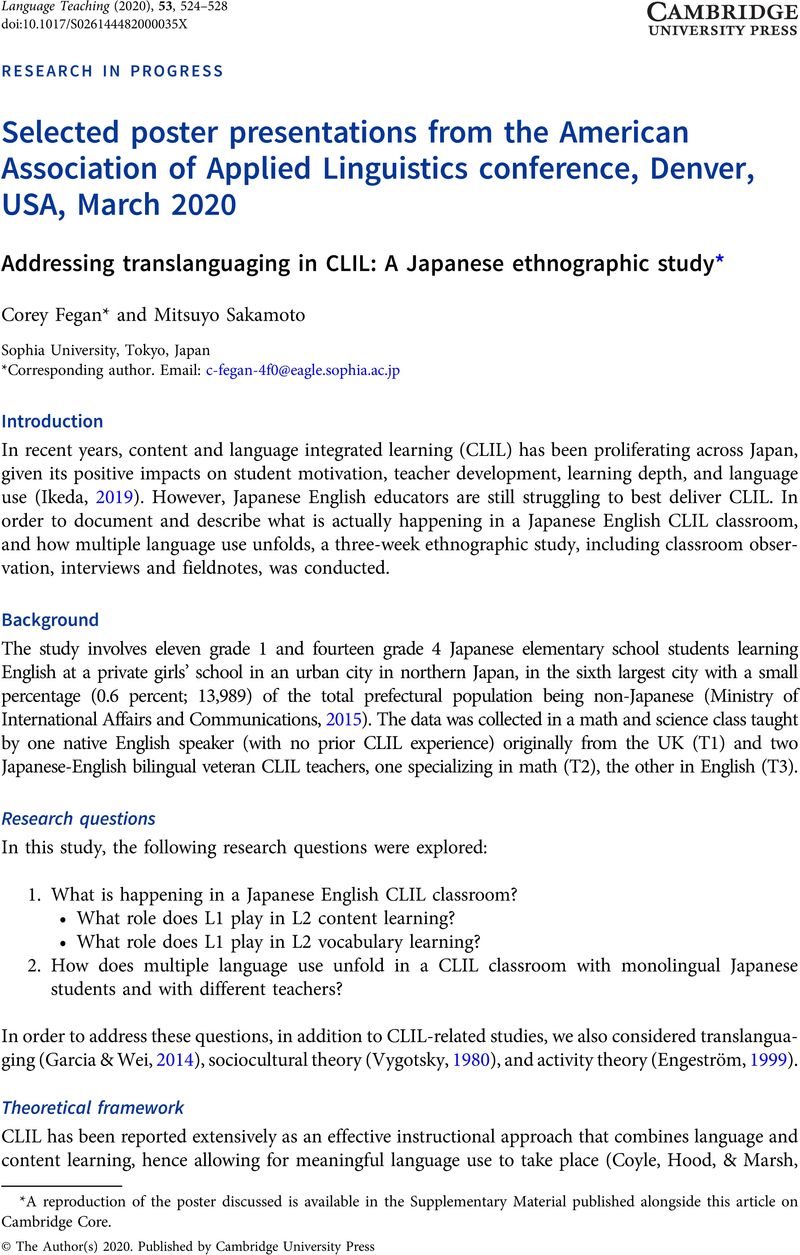Crossref Citations
This article has been cited by the following publications. This list is generated based on data provided by Crossref.
Portolés, Laura
and
Basgall, Lauren
2024.
Modern Approaches to Researching Multilingualism.
p.
183.




